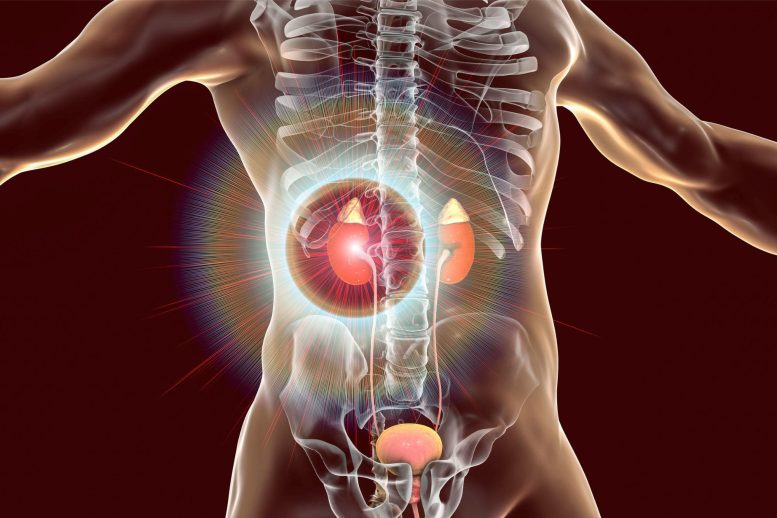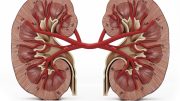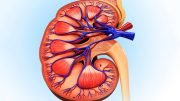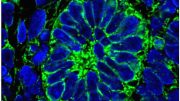
Chronic kidney disease (CKD) is a long-term condition where the kidneys gradually lose their ability to function properly. It can be caused by a variety of factors including high blood pressure, diabetes, and genetics. Symptoms of CKD include fatigue, swelling, and difficulty sleeping, and if left untreated, it can progress to end-stage renal disease requiring dialysis or a kidney transplant.
Researchers from Johns Hopkins Medicine have discovered biomarkers that can predict the likelihood of chronic kidney disease in patients who have been hospitalized for acute kidney injury.
A recent study conducted by researchers at Johns Hopkins Medicine has uncovered that elevated levels of specific biomarkers present in urine and blood can predict a patient’s likelihood of developing chronic kidney disease (CKD) following acute kidney injury (AKI), which is a sudden but temporary loss of kidney function. The study aimed to investigate the long-term effects of AKI in hospitalized patients.
The results of the study, which were published in the Journal of Clinical Investigation, have the potential to assist physicians in assessing the effectiveness of the body’s healing process following kidney damage. By better understanding the progression from AKI to CKD, it may be possible to prevent the advancement of AKI to CKD.
The kidneys are a pair of bean-shaped organs that help clean your blood and remove waste from the body. AKI occurs when your kidneys stop working properly, which can cause waste to build up in your blood, making it hard for the body to balance fluids. Although treatable, AKI could lead to CKD, a much more severe and potentially fatal condition, and other heart problems. AKI is most commonly seen in hospitalized patients whose kidneys are affected by medical and surgical stress and complications, potentially resulting in a longer recovery process and prolonged harm to the kidneys.
“About 20% of hospitalized patients develop AKI and have a three- to eight-fold increased risk of developing chronic kidney disease later on in life,” says Chirag Parikh, director of the Division of Nephrology at the Johns Hopkins University School of Medicine and the study’s corresponding author. “AKI incidence in the hospital continues to rise, so we set out to understand how and why AKI progresses to CKD, and if monitoring these patients over time can give us clues to kidney disease progression.”
According to the United States Centers for Disease Control and Prevention, an estimated 37 million people are living with CKD in the U.S., making it the 8th leading cause of death in the country.
In a cohort of 656 hospitalized patients with AKI, researchers measured seven urine and two plasma biomarkers of kidney injury, inflammation, and tubular health at multiple time points over the course of a year after diagnosis. The goal was to determine the associations of longitudinal changes in these biomarkers with the progression of kidney disease after AKI. The researchers found that for each deviation increase in change of the biomarker KIM-1, MCP-1 in urine, and TNFRI in plasma from baseline to 12 months was associated with a two- to three-fold increased risk for CKD.
Parikh says these findings suggest that sustained tissue injury and inflammation, as well as slower restoration of tubular health, are associated with a higher risk of kidney disease progression. However, they also observed that the increase in the urine biomarker UMOD was associated with a 40% reduced risk for CKD.
“Longitudinal measurement of some of these proteins have the potential to guide management of patients with AKI after discharge, which includes follow-up with a nephrologist; optimizing diabetes and cardiac medications; and accurate dosing of all medications with reduced kidney function,” says Parikh. He underscores the need for more research into these ongoing biological processes to help better understand the transition from AKI to CKD.
Reference: “Longitudinal biomarkers and kidney disease progression after acute kidney injury” by Yumeng Wen, Leyuan Xu, Isabel A. Melchinger, Heather Thiessen-Philbrook, Dennis G. Moledina, Steven G. Coca, Chi-yuan Hsu, Alan S. Go, Kathleen D. Liu, Edward D. Siew, T. Alp Ikizler, Vernon M. Chinchilli, James S. Kaufman, Paul L. Kimmel, Jonathan Himmelfarb, Lloyd G. Cantley and Chirag R. Parikh, 23 March 2023, Journal of Clinical Investigation.
DOI: 10.1172/jci.insight.167731
Funding for this study was supported by cooperative agreements from the National Institutes of Diabetes and Digestive and Kidney Diseases and the National Institutes of Health.









Be the first to comment on "Your Urine Could Predict Your Risk of Chronic Kidney Disease"